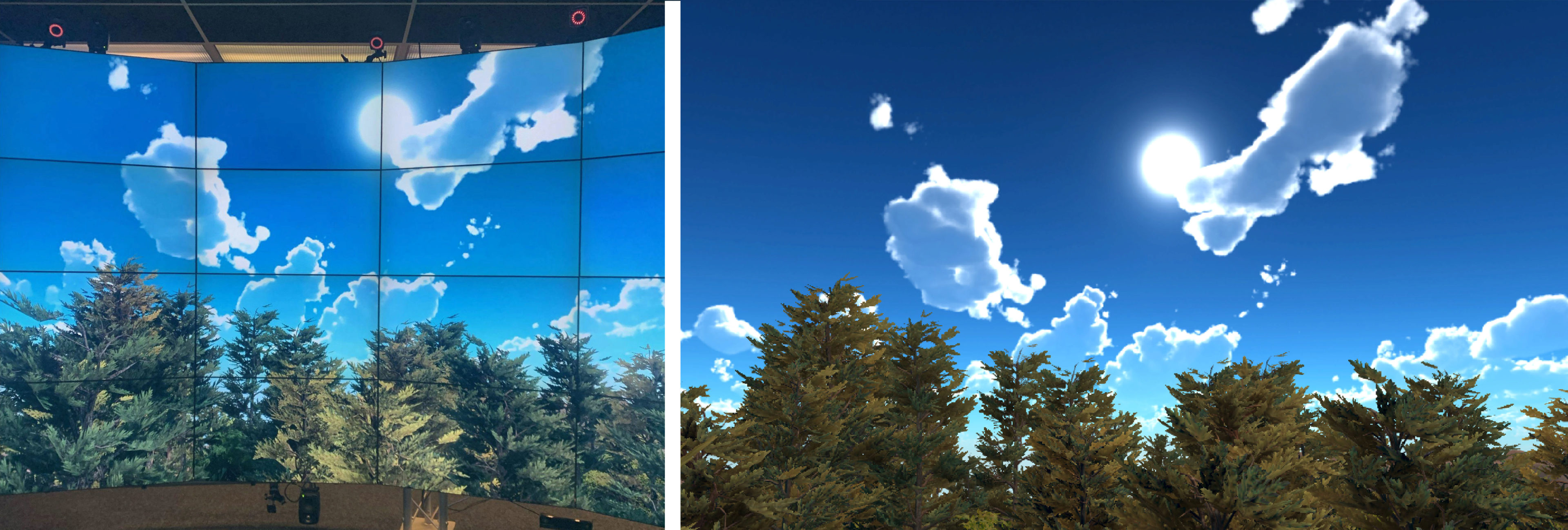The Effects of Virtual Reality Environments on Physiological Stress: A Platform Comparison Between Room-Scale Displays and Desktop Computers (MS Thesis Project)
April 26th, 2024
Categories: Applications, Human Factors, MS / PhD Thesis, Software, User Groups, Visualization, VR, VR Art, Human Computer Interaction (HCI)

Authors
Kamleh, F.About
Studies have proven the effectiveness of mindfulness and forest-immersion therapy as an option for stress reduction. However, what happens when an individual is seeking stress relief but the outdoors is unavailable due to unpredictable weather or even a lack of accessibility? The purpose of this research project is to observe the effects of guided scenic meditation in a virtual reality environment on physiological stress. Additionally, it performs a platform comparison by deploying the same meditative experience and testing its effectiveness using a room-scale immersive environment and a desktop computer, as desktops ($400 - $1000) are far more affordable and widely available compared to room-scale immersive environments ($1 million+). Using each platform, twenty participants were asked to engage with a meditative application that simulates the sights, sounds, and smells of a forest environment. Based on the objective data collected, the participants experienced a decrease in both heart rate and blood pressure, demonstrating the effectiveness of the simulation in reducing physiological stress. However, the room-scale immersive environment proved to be more successful in reducing the heart rate than the desktop computer. Furthermore, according to the participants, their subjectively perceived stress levels decreased, resulting in a far more relaxed state than before. The results showcase that a virtual simulation of a real environment actively contributes to stress reduction and can be used in cases when the outdoors is unavailable. The platform comparison demonstrates that the product of the research - a guided scenic meditation application that simulates a forest - is accessible and does not require a million-dollar room-scale display in order to be effective in reducing stress.
Resources
Citation
Kamleh, F., The Effects of Virtual Reality Environments on Physiological Stress: A Platform Comparison Between Room-Scale Displays and Desktop Computers (MS Thesis Project), Submitted in fulfillment of the Project Option Requirement for the MS in Computer Science, University of Illinois Chicago, April 26th, 2024.